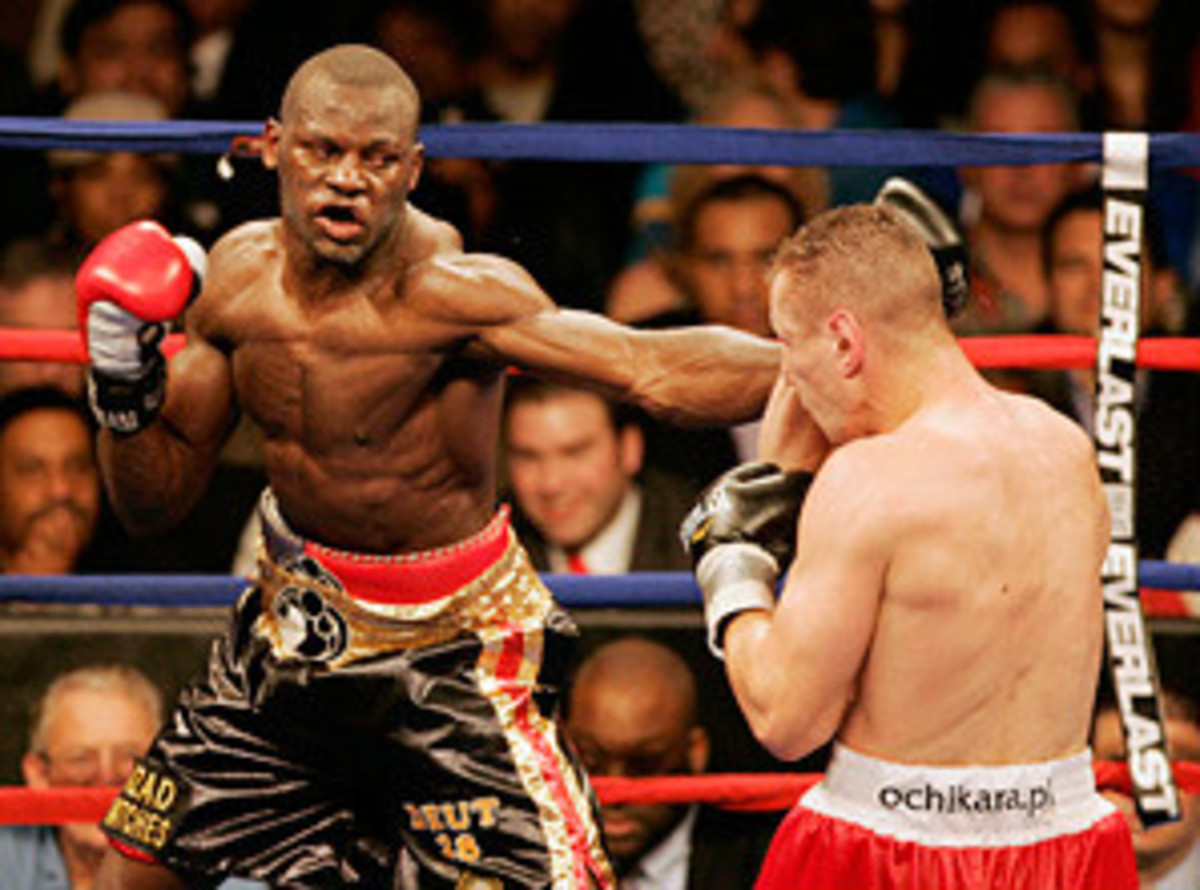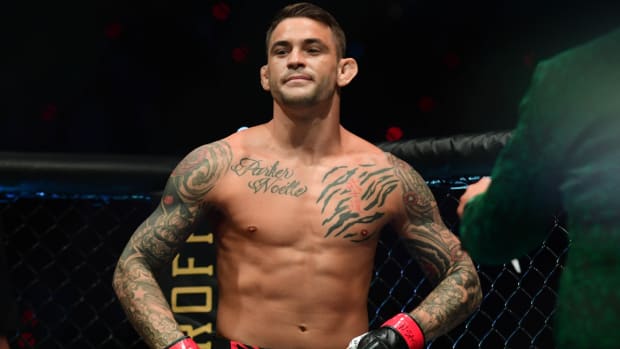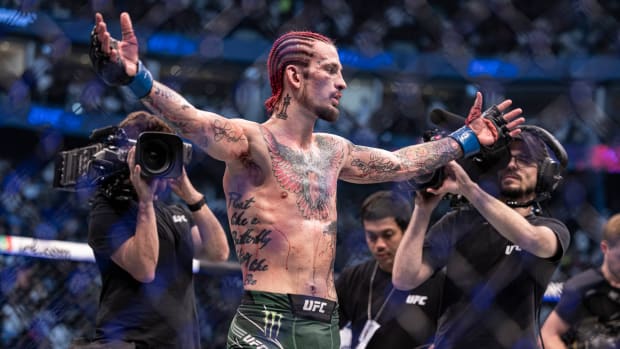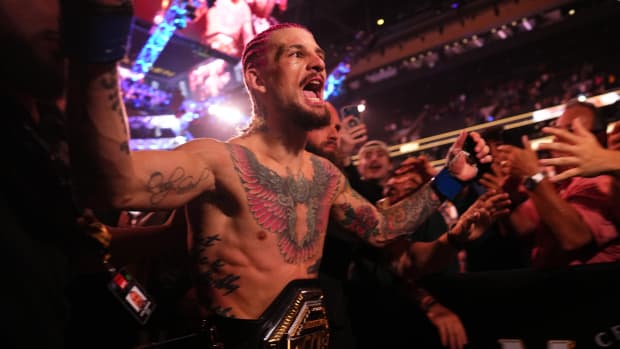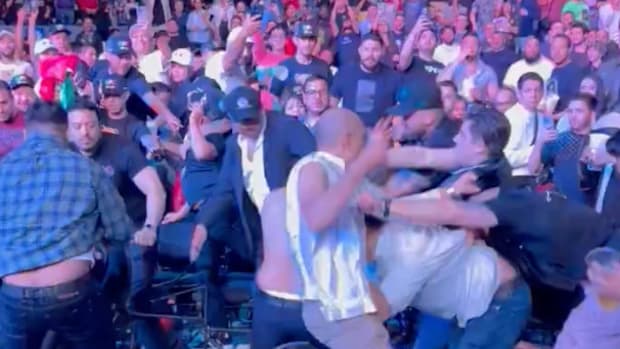Trials have prepared Cunningham for network-TV debut
Those hits he could shrug off. Those hits he knew how to handle. This was different.
And unexpected. In April 2005, Cunningham walked into that Philadelphia doctor's office with a smile on his face and a spring in his step. His wife, Livvy, was a few months pregnant and they were set to find out if they were having a boy or a girl. Steve didn't hide his preference: They had a boy, Steve Jr., who was born in 2002. He wanted a girl. "So we could stop having kids," Cunningham told SI.com with a laugh.
When a technician began the sonogram, Cunningham could hardly contain his excitement. "I just wanted to know," he said. "We had been making little bets with each other about what it was going to be." He asked the tech what it was. She told him to hold on. "I remember thinking, 'Wow, is she rude,'" Cunningham said. Moments later, the tech left the room, returning with the doctor, who delivered the grim news: The Cunningham's child, the daughter Steve wanted, had a heart condition called hypoplastic left heart syndrome. Simply, the left side of her heart was underdeveloped.
Instead of arguing over names, the Cunningham's were asked if they wanted to consider an abortion.
*****
Life has a funny way of taking people down unexpected paths. As a young child, Steve Cunningham's life was pretty good. In the early '80s, Cunningham's Philadelphia neighborhood was a comfortable place to live. "Everyone knew each other, everyone had respect for each other," Cunningham said. "We had very little problems. There was a tribal feeling in my neighborhood. People looked out for other people's kids."
When he was seven, Cunningham said, things started to change. Drugs poisoned Philadelphia. Dealers started working once-safe street corners. The number of robberies rose. Gun violence became more frequent. The city, Cunningham said, "just got grimy." "If you got into a fight, you had to be careful," Cunningham said. "You didn't know if the guy you fought was going to come back with a gun and blow you away."
Cunningham ached to escape. As a teenager, he dealt drugs a little, but he knew it wasn't a life he wanted. In high school, Cunningham focused on getting accepted to art school. He had a chance, too. But before his senior year he missed the application deadline, scuttling his dream.
At 18, Cunningham had a choice. He could go back to dealing. He could get a job at Checkers or McDonald's, working for minimum wage. Neither option was appealing. "I had an older brother who lived in my mother's basement," Cunningham said. "I didn't want that life."
While Cunningham was contemplating his future, another option emerged when a Navy recruiter visited his school. Cunningham had never considered the military before. But here was this young, sharply dressed African American serviceman standing in front of him with a hardware store of medals on his chest talking to him about seeing the world, making money and learning job skills. In September of 1994, Cunningham enlisted.
Cunningham loved the military. An aircraft refueler, he was tasked with fueling up anything that flew onto his ship. There were some horrifying moments, images that have been emblazoned into his memory that he would like to forget. Once, one of his shipmates fell overboard and Cunningham watched in horror as the man drowned before the rescue helicopter could get to him. But he learned job skills. He learned discipline.
And he learned to box. Cunningham had always been a fighter. "Where I came from," Cunningham said, "you got street cred with your fists." He dabbled in boxing, briefly, but became disenchanted after showing up at an overcrowded Philadelphia gym and being told repeatedly to "just go hit the bag."
In the Navy, Cunningham was presented with another opportunity. He was stationed at the Norfolk Naval Base in Norfolk, Va., which was 10 minutes away from the Naval Amphibious Base, where military boxers trained. Cunningham started going to the gym, and took to boxing quickly. In 1998, he won the silver medal in the Armed Forces tournament and finished first in the 178-pound division at the National Golden Gloves. He dreamed of competing in the Olympics.
He wanted to stay in the military, too. Cunningham's enlistment was up in 1998, but he was ready to sign on for more. His ship captain had been supportive of Cunningham's boxing career. But just before he had to make decision about reenlisting, he got a new captain, one who believed his crew should focus on Navy duties and nothing else.
Cunningham left the Navy and moved to Atlanta to train. He met Livvy, a recent graduate of Boston University, who was working out at his gym, and the two have been together ever since. He failed to make the 2000 Olympic team but after turning pro in 2000 he won his first 19 fights and a piece of the cruiserweight title in his 21st. For the last six years Cunningham has been among the top cruiserweights in the world, fighting mostly in Europe, where most of the best 200-pound fighters are based. On Saturday, Cunningham (25-4), who moved up to heavyweight in September, will have the opportunity to avenge one of his losses when he takes on Tomasz Adamek (47-2) in a rematch of a wildly entertaining 2008 fight (4 p.m. ET, NBC)
Cunningham is expecting a battle in the ring. But it pales in comparison to the one he is fighting out of it.
*****
On a chilly December evening, seven-year old Kennedy Cunningham wanders around a Philadelphia gym, a bulky jacket around her shoulders and a wide smile on her face. It's been a long road for Kennedy. When she was just three days old she underwent open heart surgery. During the procedure, doctors told the Cunningham's that they were having trouble controlling the bleeding and that they should prepare themselves for the worst.
"She made it through, barely," Livvy said. "She came out of it pretty beat up."
At six months, Kennedy had another heart procedure, one that went much smoother but was no less nerve racking. For nearly a year, Kennedy called the Children's Hospital of Philadelphia home.
Remarkably, Cunningham's career continued throughout this. In a way, it helped the Cunningham's through it. Steve and Livvy--who was deeply involved in Cunningham's career and now doubles as his manager--vowed to keep life as normal as possible. Cunningham would run, go to the gym, then go to the hospital, daily. He continued to fight, beating Kelvin Davis three days before Kennedy was born and Lloyd Bryan weeks before Kennedy's second surgery.
"We wanted to treat her like she was a normal little girl," Cunningham said. "We were basically living at the hospital but we didn't want it to affect our family."
Today, Kennedy is far from out of the woods. Last spring, she had trouble breathing. The Cunningham's feared she was going into heart failure. She was hospitalized for two weeks. Ordinarily, the treatment for hypoplastic left heart syndrome is three surgeries. But while Kennedy was in the hospital, doctors told the Cunningham's they didn't feel Kennedy could survive a third operation right now. She is a candidate for a heart transplant but, Livvy said, "You basically have to wait for her heart to stop working to get on the transplant list. So you are just waiting for something bad to happen."
Faith has buoyed the Cunningham's. They never considered abortion because of it and they lean on it now, as Kennedy fights for survival. "She's an amazing little girl," Livvy said. "She's the sunshine of our lives."
For Steve Cunningham, Kennedy's battle has given him perspective. He knows he has a tough fight against Adamek, who knocked him down three times to win a split decision in '08. But it's nothing compared to Kennedy's fight for survival.
"This whole situation makes you appreciate what you have," Cunningham said. "People say that but it's true. We don't know what is going on with her body. We could have to take her to the hospital any day. She's the light of our family. She's a fighter. And she doesn't give up."
